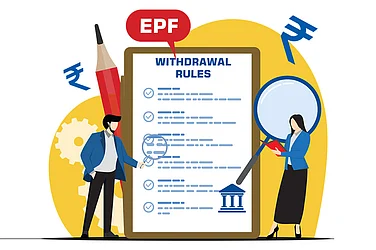My friend’s money coach has now become her years-long friend and advisor. He was the first person who explained to her how markets behave and how our behaviour sometimes gets dictated by it, he held her hand in times of need and even offered a loan without interest, advised her about how transient our attachments to real estate are and so on. In short, he doesn’t just sort out her investments, he is also great at settling her fears and anxieties when things start going south.
“Sometimes I behave and talk with him like a financially illiterate person, but he has never lost patience with me. Only six months ago, he assuaged my anxiety about the volatile markets, telling me to concentrate on my long-term goal,” she told me when I met her recently.
She had complaints too: “But there are times when he is just too conservative.”
“And when is that usually?” I asked.
“Ok, I will give you an example. During the Covid crash, I wanted to invest in the markets, but he asked me to hold on in such a situation.”
“And what situation was that?”
“Ummm, well, I did have to take a 20 per cent salary cut and my husband was fearing a job loss. But we had some surplus. And now look at the kind of money people who invested then made. And after all, everything turned for the better for both me and my husband.”
“But what if the situation hadn’t changed for the better?”
She paused, understanding my insinuation, and said: “Hua to nahin na (it didn’t happen, right!). But he made us cut expenses and continue our systematic investment plans (SIPs). That’s something.”
With that unsaid agreement on dismissing her flimsy complaint, we went ahead with the evening and moved on to other far-more-interesting topics of conversation.
Later, I felt satisfied that my friend’s finances were in good hands. The savviest of disciplined investors get rattled and are gripped by self-doubt in certain situations. The stock market can be ruthless and make or break you in a matter of minutes by taking advantage of extreme emotions like elation, panic, greed and fear that can easily grip you; businesses and the economy want you to spend and won’t shy from using your emotions against you to trick you into splurging; and the financial sector would use similar methods to leave you with a product or investment that you never wanted.
Try and spot the common strain—it’s your emotions that are coming into play each time. So, start by looking into yourself, identify and acknowledge your set-in-stone beliefs and behavioural biases and start dealing with them one at a time.
For my friend, “invest during dips” was one such set-in-stone belief that she didn’t even want to bother to take into account her financial situation—let alone the situation the pandemic created—before wanting to invest the sum that could have come in handy if the situation had worsened for her family. All she needed to hear was a sane voice to help her course correct. Have you found that sane voice yet?
In Outlook Money's Print Edition, "Freedom From Self" the headline was: Who’s Your Anchor In The Storm?














